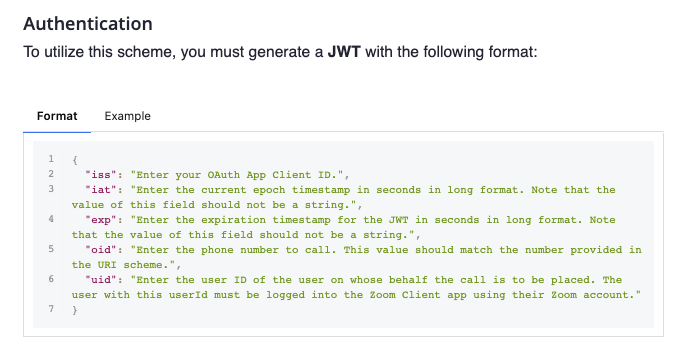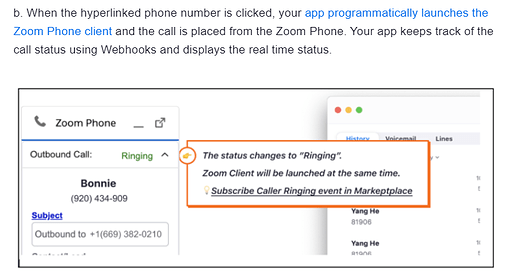Description
We have purchased a Zoom phone license and we are trying to do a POC before starting off the full development. We have couple of queries to clarify whether our requirement would become feasible with the features to offer by Zoom.
We have an enterprise application used by our customers. It’s like a CRM tool. The logged in users want to be able to initiate calls upon the click of phone numbers from our application and later they want to be able to see the call recordings in the applications for the calls made specific to the logged in user.
Insights we got through documentation:
Click a phone number in the browser => Invoke the Zoom client installed in user’s computer => Initiate the call
Create an app in the Zoom Market place (JWT/ OAuth) => Subscribe to Web hook events => get notified about the call status.
We have following queries:
-
Q1. If our web application is used by many users who logs in and want to create calls, does buying single zoom phone license would be suffice and how it functions if multiple users logs into zoom client app with same account on different computers and trying to make calls concurrently?
-
Q2. If each user should have dedicated Zoom phone license then how can we capture their calls events? Do we need to create an app on each account and configure events exclusively or we can have one common app created and will be able to route all calls from different accounts to the common app and trigger the web hooks?
-
Q3. There could be at least one thousand users who can log into our web application and try to make calls to their assigned customers and we might want to get call data information associated with only logged in user, will this be possible?
We can’t get much out of available zoom phone integration documentation in the less time we have, we really appreciate any possible features or ideas to go with that suits our client needs.
Which App Type (OAuth / JWT / Webhook)?
Which Endpoint/s?
Configured through event subscription using web-hooks feature on an account created in the market place for a user.





